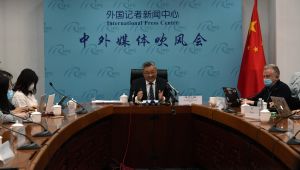Assessing the Threat: Nuclear Beliefs and Signals in International Crises
While scholars have long noted the deterrent power of nuclear weapons, there remains significant debate over whether nuclear arsenals offer states coercive advantages in crisis bargaining. In this Project on Managing the Atom seminar, Julia Macdonald will argue that this continued controversy over the relative importance of nuclear weapons during interstate disputes is due in part to a lack of scholarly attention on target states and a limited understanding of how nuclear threats are interpreted by leaders when compared to non-nuclear coercive demands. Drawing evidence from a case of nuclear signaling during the Cold War – the Cuban Missile Crisis (1962) – she will show that the extraordinary levels of destruction promised by nuclear weapons and the risk of their use proved crucial to threat assessments in the Soviet Union, and to those of Premier Khrushchev in particular. In this case, the salience of nuclear threats, and more specifically the risk of escalation to nuclear war, led Khrushchev to update his initial assessments of U.S. interests and threat credibility and compelled the Soviet leader to end the crisis.


